Throughout our nation’s history, certain names loom large. From the Founding Fathers to sports champions to unsung heroes, these are the people who helped to give shape and texture to America as we know it today. Some were presidents and politicians, while others were simply regular folks who made a difference in some small but important way. In any event, these 20 books about influential Americans will change the way you look at their subjects—and just maybe the way you see your own country.
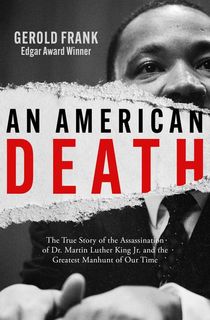
An American Death
Edgar Award winner Gerold Frank tackles the subject of Martin Luther King Jr.’s murder in this gripping chronicle of events. In addition to examining the details of the assassination itself, he builds a comprehensive timeline of the days before and after. James Earl Ray is also extensively studied. For a thorough understanding of the crime that shook a nation, “Frank’s reconstruction of Dr. [Martin Luther] King’s murder and its aftermath is remarkably convincing” (The New York Times).
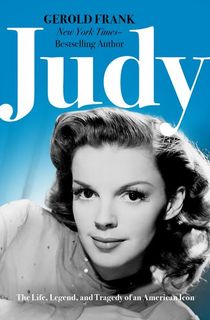
Judy
Also written by Gerold Frank, the New York Times bestselling biographer turns his attention to the tumultuous life of actress Judy Garland. Tragically, this book was supposed to be a collaboration, but he had to complete the project alone when she died of an accidental overdose at age 47. Drawing on more than 200 interviews and authorized access to her private papers, the final result is a “messy and insatiably involving story” about an iconic woman and her complex life (Kirkus Reviews).
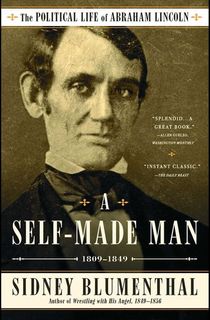
A Self-Made Man
The former senior advisor to Bill Clinton and a staff reporter for The Washington Post kicks off his “minutely detailed” (Kirkus Reviews) multi-volume series about the life of Abraham Lincoln with this in-depth examination of his early political career and influences. Tracing Lincoln’s antislavery thinking and political acumen from his earliest days in Kentucky and Indiana through his presidency, this “fascinating” book (Booklist) is the first part of a truly deep dive into the life of one of America’s most important and iconic presidents.
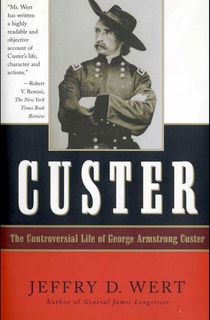
Custer
George Armstrong Custer graduated last in his class at West Point and yet rose to become the youngest general in the Union Army. From his early victories to his legendary defeat at Little Big Horn, Custer has become a highly mythologized figure from one of our nation’s most tumultuous periods. Yet in all that storytelling, the man himself is often lost. Not so in Jeffry Wert’s “highly readable and objective account of Custer’s life, character, and actions” (New York Times Book Review), the first complete biography of this legendary figure in decades.
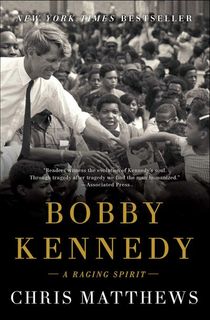
Bobby Kennedy
Offering “considerable insight from beginning to end” (New Republic), Chris Matthews’ biography of the assassinated politician “evocatively brings the man and his moment back to life” (Daily Beast). Though often overshadowed by his brother, John F. Kennedy, Robert F. Kennedy was an important political figure in his own right, and this new look at his life and legacy traces his time in the Navy to his pivotal role as attorney general in his brother’s administration and his own tragic bid for the White House, when he was gunned down on the campaign trail.
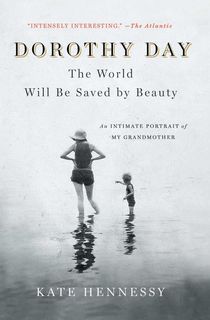
Dorothy Day
Dorothy Day may be an unlikely candidate for sainthood, and yet the Catholic Church is openly considering just that. A journalist and social activist who converted to Catholicism after living what she called a “disorderly life,” Day became a champion of the poorest of the poor and was the co-founder of the Catholic Worker Movement.
A practitioner of civil disobedience, she was arrested multiple times, including once when she was 75 years old. In this “intimate, revealing and sometimes wrenching family memoir” (New York Times), Day’s granddaughter tells the story of her grandmother, and how that story has affected her family and the world.
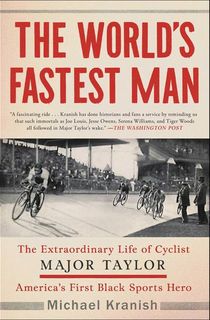
The World's Fastest Man
Before Jack Johnson, before Jackie Robinson, before Jesse Owens, there was Major Taylor, a Black man who became a world champion in the almost exclusively white sport of cycling. In this “sharp-eyed account” (Publishers Weekly) years in the making, investigative journalist Michael Kranish reveals the too-often forgotten story of how Taylor became a world champion in the 1890s, becoming “one of the first black athletes to overcome the drag of racism and achieve national renown” (New York Times Book Review). The result is “an essential contribution to sports history” that is “both inspiring and heartbreaking” (Booklist).
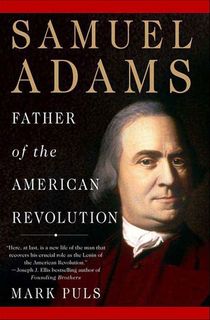
Samuel Adams
Samuel Adams has been considered an overshadowed Founding Father. However, in this “brief, sharply focused biography” (Kirkus Reviews), author Mark Puls argues that Adams was the decisive figure in the American Revolution, the man who Thomas Jefferson called “the fountain of our more important measures.” As one of the earliest of the Founding Fathers to advocate for independence from British rule, this “fine study” (Publishers Weekly) brings to life a canny politician and early provocateur who was instrumental in a fledgling nation’s quest for independence.
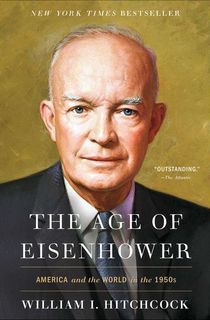
The Age of Eisenhower
Drawing from newly declassified documents, William Hitchcock composes a “complete and powerful assessment” (Booklist) of the presidency of Dwight D. Eisenhower, who shepherded the United States through some of the most tumultuous moments of the 1950s, including unrest during the fight for civil rights, the end of the Korean War, the perils of McCarthyism, and the possibilities of the New Deal. The result is a “splendid biography” (Washington Times) that sheds new light not only on Ike himself, but on the often-stereotyped era in which he was president.
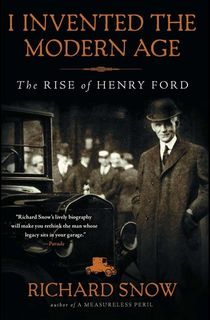
I Invented the Modern Age
Once called “the people’s tycoon,” the reputation of Henry Ford has changed considerably over the years since he rolled his first Model T out of the factory. Whether he was a pioneering genius or an antisemitic quack, however, there’s no denying that Ford’s success helped to reshape the modern world, for good or ill. And, according to Forbes, “No one has told the story of Henry Ford’s incredible rise and achievements better than Richard Snow in this book.”
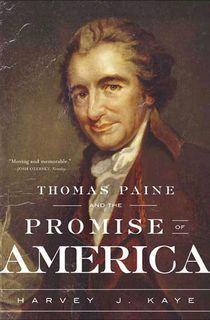
Thomas Paine and the Promise of America
Harvey J. Kane's biography stands out from the crowd because of its "aims to repossess Paine from conservatives who ‘do not—and truly cannot—embrace him and his arguments’” (Booklist). In so doing, historian Kaye focuses on Thomas Paine’s legacy as “the greatest radical of a radical age” in this “masterful and eloquent study” that “reestablishes [Paine] as the key figure in the American Revolution and the radical politics that followed it” (Publishers Weekly).
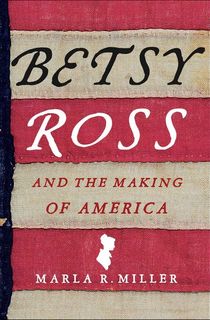
Betsy Ross and the Making of America
By creating the first American flag, Betsy Ross became an integral part of our national mythology. And yet, most historians now believe that the story of Ross creating the first flag is apocryphal. In this “first-rate biography” (Publishers Weekly) of one of Philadelphia’s most important flag makers during the Revolution, history professor Marla R. Miller argues that, whether Ross actually made the “first flag” or not, her story “illuminates the significant role that ordinary citizens—especially women—played in the birth of the new nation” (Booklist).
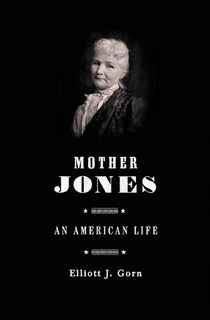
Mother Jones
Lending her name to a popular progressive magazine and boasting the memorable slogan, “Pray for the dead but fight like hell for the living,” Mother Jones is probably better remembered today as a symbol than as a person. This “engaging biography” (Publishers Weekly) helps to correct that, filling in the gaps in the life of the woman who became almost synonymous with America’s labor struggles at the end of the 19th and into the early 20th centuries while also “recall[ing] an almost forgotten American radicalism and remind[ing] readers that the Gilded Age façade hid an industrial system built on exploited labor and poverty” (Library Journal).
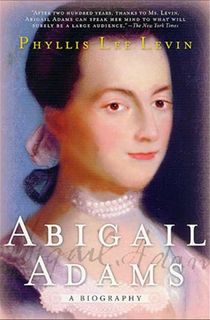
Abigail Adams
Wife of one president and mother to another, Abigail Adams was an extraordinary woman living at an extraordinary moment in American history. In this biography of an American icon, Phyllis Lee Levin “furnishes the historical frame for the domestic and public events” that shaped Adams’ life (Publishers Weekly), painting a portrait of a woman who was both a “worldly puritan” and an advocate for women’s suffrage, who warned her husband that women would “foment a rebellion” if they were denied rights in the fledgling nation.
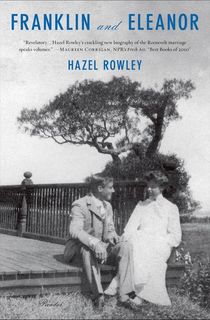
Franklin and Eleanor
“An engrossing account of an unusual pairing of two extraordinary people” (Publishers Weekly), Hazel Rowley’s heavily researched account of the marriage between Franklin and Eleanor Roosevelt takes a fresh look at one of America’s most scrutinized couples, arguing that, although thoroughly unorthodox, their union was a mutually beneficial one, forged of respect, admiration, and ambition. “There are not good or bad guys in this glimpse into the intimate spousal accord that bound the Roosevelts together,” writes Booklist about this unique new look at one of America’s most classic power couples.
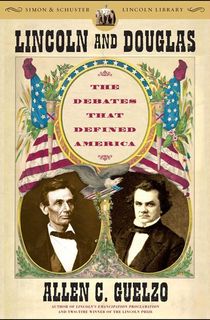
Lincoln and Douglas
Two-time winner of the prestigious Lincoln Prize, Lincoln scholar Allen C. Guelzo delivers an “astute, gracefully written account of the celebrated Lincoln-Douglas debates of 1858” (Publishers Weekly). Beyond merely rehashing the debates themselves, Guelzo’s work places them in their historical context, and shows how the questions raised in the debates helped to shape the nation, from the coming Civil War and emancipation to the present day, where we still grapple with some of these same conflicts about the purpose and role of government.
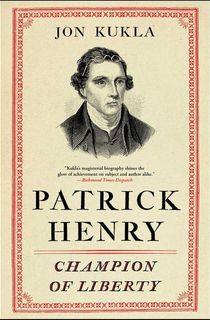
Patrick Henry
“Give me liberty, or give me death!” This fiery rallying cry has become more famous than the man who said it, yet this “magisterial biography” (Richmond Times Dispatch) argues that Patrick Henry was perhaps the first Founding Father, and one of the most important voices in early American independence. Heavily researched by the author—including a stint living on one of Henry’s own former estates—this “definitive” (Kirkus Reviews) biography aims to reinstate Henry as one of the most foundational of the early American political figures.
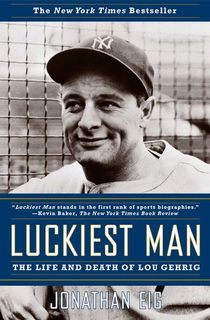
Luckiest Man
Today, Lou Gehrig is as inextricably associated with the disease that cut his life tragically short as he is with his legendary baseball career, including his streak of playing some 2,130 consecutive Major League games, a record that wasn’t broken until 1995. In telling his story, Jonathan Eig draws on hundreds of pages of previously unpublished records and correspondence to create a book which “stands in the first rank of sports biographies” (New York Times Book Review), giving readers an intimate portrait which treats its subject with “powerful sensitivity” (Publishers Weekly).
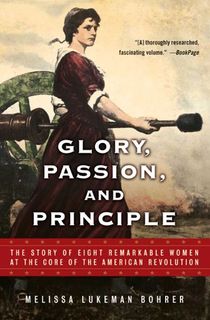
Glory, Passion, and Principle
Stories of the American Revolution tend to focus inexorably on men. Melissa Lukeman Bohrer’s “thoroughly researched, fascinating volume” (BookPage) helps to rectify that oversight with “eight spirited narratives about women who played inspirational roles in the birth of a nation” (Boston Herald). Some are familiar, such as Abigail Adams or Deborah Sampson, who both received full-length books elsewhere on this list, while others are perhaps less well known, such as Lydia Darragh, a Quaker who worked as a spy for George Washington.
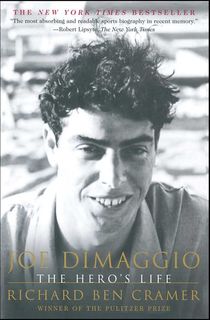
Joe DiMaggio
Pulitzer Prize-winning author Richard Ben Cramer has taken the story of one of America’s greatest baseball icons and crafted “the most absorbing and readable sports biography in recent memory” (New York Times). Meticulously researched, Cramer’s portrait of Joe DiMaggio encompasses not only the legend’s highs and lows—including his 10 World Series titles and his marriage to Marilyn Monroe—but also the hidden details of his life and the perks and costs of national celebrity. DiMaggio rose from an immigrant kid in a large Italian family in the ‘30s to one of the highest paid baseball players in the world, and in this book his story becomes the story of American celebrity in the hands of a celebrated teller.
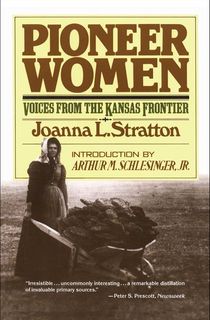
Pioneer Women
In “a striking testimonial to the too often overlooked feminine half of the pioneer experience” (Cleveland Plain Dealer), Joanna L. Stratton draws from hundreds of biographical accounts written by women who lived on the Kansas frontier to tell an “uncommonly interesting” story that is a “remarkable distillation of primary sources” (Newsweek). Here, the lives of women on the American frontier are brought to life in their own words, showing the drama, the violence, the privation, the determination, and the excitement that helped to make America what it is today.
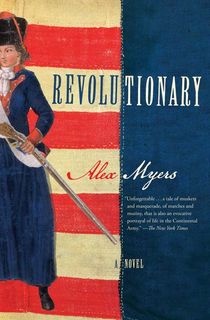
Revolutionary
Deborah Sampson may have been America’s first woman soldier. She fled indentured servitude in a Massachusetts town to disguise herself as a man and join the Revolutionary army. Now, more than two centuries later, one of her own descendants has written “a remarkable novel” (New York Times) about her life and times.
Alex Myers is no stranger to trailblazing acts in defiance of rigid gender roles himself, as the first openly transgender student at Phillips Exeter Academy and Harvard University, and in this “thought-provoking work” he “lets readers explore both the external and internal transformations of this valiant American soldier” (Booklist).
This post is sponsored by Open Road Media. Thank you for supporting our partners, who make it possible for The Archive to continue publishing the history stories you love.
